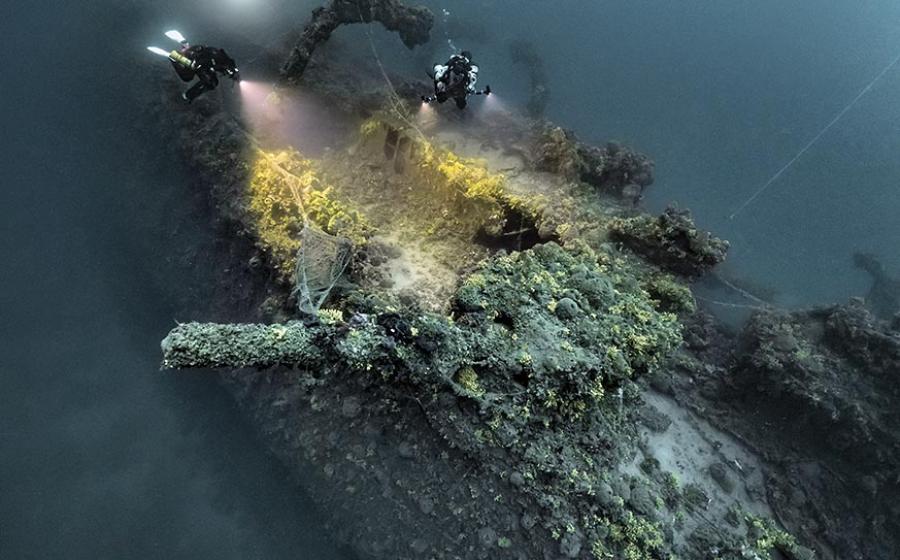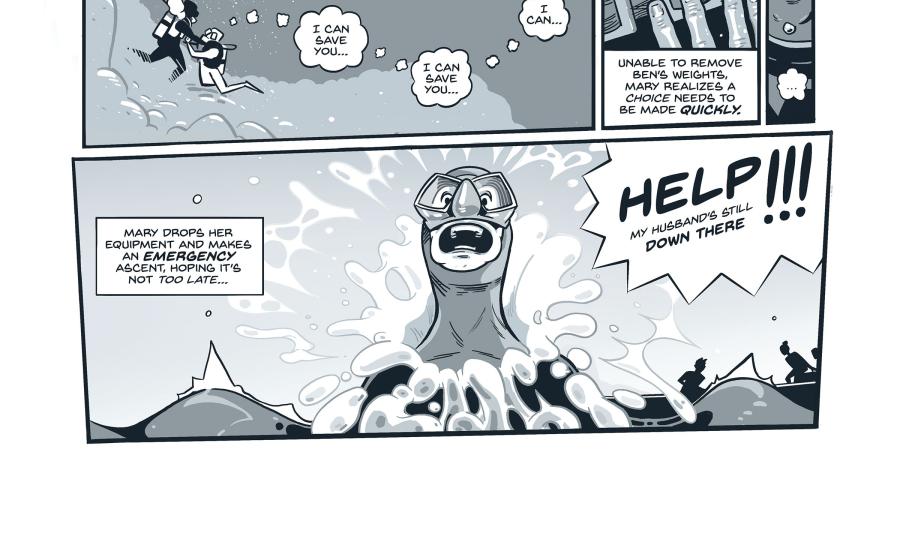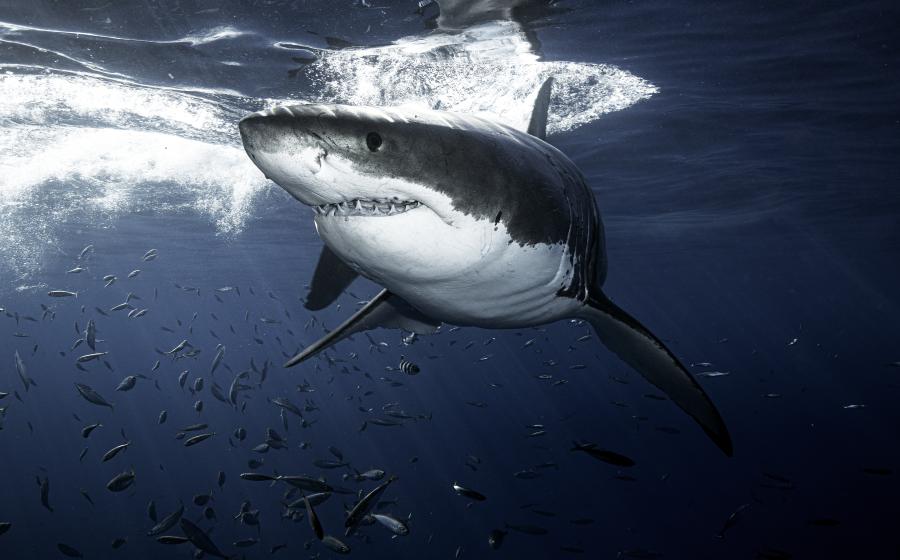Critter Hunt: Blenny Quest

Blenny Quest
Ned and Anna DeLoach
Ever since I first saw a photo of a longhorn blenny — Hypsoblennius exstochilus — many years ago, the rare little Caribbean fish with cirri extending from its head like a pair of telephone communication towers has been on my wish list of must-see animals. That is until we are enticed to explore Bonaire’s “wild side” with Bas Tol, premier dive guide and king of the island’s lionfish slayers, with a promise of finding our long-sought prize hiding in the surge-swept shallows lining a blustery bay on the windy eastern shore.
It takes two weeks before the prevailing winds calm sufficiently for us to tackle the shore entry into the rockycove where the blennies make their home. Burdened with extra weights, we stumble our way through the minefield of ankle-twisting rocks until we can at last plunge into the relative safety of waist-deep waves.
As the bubbles clear, we find ourselves swimming over an algae garden stretching as far as our eyes can see. Within 10 minutes, we find our first blenny poking its head out of a rock hole half-hidden among the billowing fronds. But such glimpses are brief as swells lift us up and away, and we kick, tumble, and struggle for control. With three of us hunting, we locate a longhorn about every 10 minutes or so in depths from three to 10 feet. As it turns out, our blenny hunt is the perfect mission: Conditions hover at the edge of doable, yet it’s sufficiently daunting to make for a lively tale. — Story and photo by Ned and Anna DeLoach

Ned and Anna DeLoach
Ever since I first saw a photo of a longhorn blenny — Hypsoblennius exstochilus — many years ago, the rare little Caribbean fish with cirri extending from its head like a pair of telephone communication towers has been on my wish list of must-see animals. That is until we are enticed to explore Bonaire’s “wild side” with Bas Tol, premier dive guide and king of the island’s lionfish slayers, with a promise of finding our long-sought prize hiding in the surge-swept shallows lining a blustery bay on the windy eastern shore.
It takes two weeks before the prevailing winds calm sufficiently for us to tackle the shore entry into the rockycove where the blennies make their home. Burdened with extra weights, we stumble our way through the minefield of ankle-twisting rocks until we can at last plunge into the relative safety of waist-deep waves.
As the bubbles clear, we find ourselves swimming over an algae garden stretching as far as our eyes can see. Within 10 minutes, we find our first blenny poking its head out of a rock hole half-hidden among the billowing fronds. But such glimpses are brief as swells lift us up and away, and we kick, tumble, and struggle for control. With three of us hunting, we locate a longhorn about every 10 minutes or so in depths from three to 10 feet. As it turns out, our blenny hunt is the perfect mission: Conditions hover at the edge of doable, yet it’s sufficiently daunting to make for a lively tale. — Story and photo by Ned and Anna DeLoach










